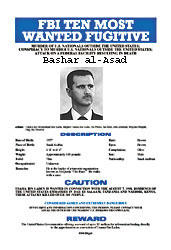Veronica Rivera's scam was simple. She would park her luxury sedan at Oakland's Claremont Avenue DMV, whip out her cell phone, chat a bit in Tagalog, and the cash would flow. Her clients were illegal immigrants desperate for a driver's license. For a hefty price, she got them one, no questions asked. The operation apparently netted her and her partners inside the DMV several hundred thousand dollars. Then the money came to an end. She and her main partner, Frances Aliganga, were arrested and indicted by a federal grand jury on twelve felony charges, and now each face up to 55 years in prison.
The early-August arrests made headlines around the Bay Area, but a closer look at recently unsealed documents reveals that flaws in the DMV's policies and computer system made it startlingly easy for Aliganga to issue real drivers' licenses to illegal immigrants. The documents also raise serious questions about how many other California DMV employees also may have sold IDs to people here illegally. While investigating Rivera and Aliganga's operation, the FBI also uncovered two similar -- but apparently separate -- scams operating out of the same office. The presence of three fraudulent-license rings in one office, along with the ease with which they were able to operate undetected, suggests the statewide scope of such fraud could be vast.
The following account of the nineteen-month undercover investigation is based on information provided by the California Department of Motor Vehicles and a synthesis of three sworn FBI affidavits. One was signed by Special Agent Jason Richards, the other two by Special Agent Susan Sivok. Both are members of the FBI's Northern California Public Corruption Squad.
As with most public corruption cases, the investigation began with a tip. In November 2003, investigators learned that two illegal immigrants had received drivers' licenses at the Claremont branch, one of the busiest DMV offices in Northern California.
Once they started looking, DMV officials quickly determined that employee Frances Aliganga had processed the two licenses in May and October 2003. Aliganga had transferred to Claremont in April 2001 and was promoted four months later to a more responsible position as licensing registration examiner. The $40,000-a-year job gave her the authority to process license paperwork and conduct both the written and driving tests -- essentially without supervision.
Once they examined the two bogus records, DMV officials realized what Aliganga had done. For both, she simply typed the same fake Social Security number -- 000-11-2222 -- into agency computers. Officials immediately ran a report and discovered that she had used the same number 56 other times without being detected.
DMV investigators then interviewed several of the 56 people. Three identified a photo of Aliganga and said they had paid her bribes of $1,000 to $2,800 for licenses. A fourth admitted to paying a woman named "Veronica" $3,000 for a license and gave investigators a cell-phone number that was registered to Rivera.
In February, the FBI decided to go undercover. "I don't think there's anything more damaging than having somebody condemn themselves in their own words on tape," FBI spokeswoman LaRae Quy said in an interview.
On February 27, 2004, an undercover operative identified in affidavits as Agent 1 dialed the cell phone of Rivera, a five-foot-four-inch, 125-pound Filipina who also goes by the name Veronica Antonio. Affecting a thick Hispanic accent, Agent 1 asked about buying a driver's license, and Rivera said it would cost $3,000. She told Agent 1 to get half of the money and call her back in a week.
On March 5, Agent 1 met Rivera in person for the first time. The brash driver's-license broker, who has never worked for the DMV, flashed a page in her calendar, showing the names of some of her other clients. Business was so good, she boasted, that she had a waiting list. Agent 1 paid her $1,500 cash.
After several phone conversations, Agent 1 and Rivera met again. This time, the agent wore a wire for their rendezvous in Rivera's BMW outside the DMV. Rivera told Agent 1 she had set up a meeting inside the branch between the agent and an employee whom she called "the only Filipino lady inside." Rivera then described the employee and sent Agent 1 in. The agent walked by the long lines of people and immediately met with Aliganga, who instructed the agent to have a photo taken and sign documents.
Another DMV employee snapped the agent's photo and administered a written exam. Even though Agent 1 "intentionally marked the wrong answer on the overwhelming majority of questions," according to an affidavit, Aliganga "tossed the exam aside, barely (if at all) glancing at it." The agent went back outside and got into Rivera's car.
Minutes later, Rivera's cell rang, and she began speaking in Tagalog. An FBI review of phone records later showed that the call came from Aliganga. After another call, Rivera instructed the agent to walk back inside and go directly to the driver's-license window. There, Aliganga gave Agent 1 a handwritten temporary license. Agent 1 returned to Rivera's car and handed her the other $1,500.
Over the next several months, Rivera gave the agent several more temporary licenses as each one expired. Agents also tailed Rivera, who drove either a BMW or a Mercedes, from her Daly City house to the Claremont DMV, where she met people in the parking lot and sent them inside to Aliganga. The FBI also rifled through the trash at Rivera's home and tailed Aliganga in her Mercedes from the Claremont DMV to her home in Fairfield.
In the spring of this year, the bureau placed two more agents undercover. Agent 2 called Rivera in early May and told her about having "passed" through the US border without a visa -- essentially admitting illegal entry to the United States. A few weeks later, Agent 2 also told Rivera that a friend (Agent 3) was in town for only a few weeks and needed an ID right away. Aliganga processed Agent 3's request, while a friend of Aliganga -- 43-year-old DMV employee Brachelle Fifer of Oakland -- did the same for Agent 2. On June 9, Agent 2's license arrived in the mail inside a handwritten envelope postmarked Oakland. Agent 3's ID came in the mail five days later.
In late June, the FBI arrested Rivera, 54, and Aliganga, 53. Both confessed and said they used Fifer occasionally when Aliganga was not available. Fifer, however, appeared to be getting scammed, too. While Rivera collected anywhere from $1,000 to $5,000 per license, the two told investigators that they paid Fifer only $100 each when she helped them. Fifer also was arrested and indicted. In searches of Rivera's car and home, agents also found her 2004 and 2005 calendars, which provided the details of her operation, including the names of more than two hundred customers.
It's a myth that computer crimes are usually committed by hackers. In reality, it's often low-level employees who find a flaw in the security system of a corporation or public agency. "We see it all the time: You entrust employees with too much information, especially low-paid, transient workers," said Lt. Richard Nichelman of the Northern California Computer Crimes Task Force, whose agency was not involved in the DMV investigation. "It's a safeguard issue."
Safeguards were clearly lacking in the DMV's computer system. Although the system was set up to flag the use of bogus or stolen Social Security numbers by cross-checking them with the computers of the Social Security Administration, it had one fatal flaw -- it trusted employees too much.
It's unclear exactly when Aliganga discovered the flaw, but sometime after she was promoted in August 2001, she realized that she could repeatedly use the same phony Social Security number and the computer would accept it -- and her bosses wouldn't notice. But more importantly, the system also let her override the Social Security Administration cross-check, DMV spokesman Steve Haskins acknowledged. Haskins would not say how long the flaw existed, nor would he say what steps the DMV took to fix it. Apparently it took more than one, because at some point during the investigation, Aliganga stopped using the bogus Social Security number and began using actual -- but stolen -- numbers. When asked if it was still possible for a DMV worker to get away with what Aliganga did, he said: "We have taken a closer look and we have reconfigured our system and closed the loophole."
But the evidence uncovered by the FBI's investigation suggests that Rivera and Aliganga's ring might just be a tiny part of the problem. Besides Aliganga and Fifer, two other Claremont DMV employees, Stephanie Denise Davis, 37, and Leneka T. Pendergrass, 27, both of Oakland, also were arrested and indicted for processing fraudulent drivers' licenses. Both also are accused of gaming the DMV computers, but they apparently operated separate scams unrelated to the one run by Aliganga and Rivera. Pendergrass also is accused of manipulating the DMV computer so that she could register vehicles that had not passed the state smog test.
Haskins and FBI spokeswoman Quy said the Claremont sting was a part of a wider investigation of DMV offices around the state and nation, but neither would comment on whether investigators have run reports to find out whether any other DMV employees also ever keyed in fake or stolen Social Security numbers. Nor would Haskins provide an estimate of how many other illegal IDs may have been issued statewide.
When told of the investigation and the flaws it uncovered at the DMV, some legislative leaders expressed dismay. "This is a chilling revelation," said state Senator Dennis Hollingsworth, a Southern California Republican who has opposed calls for state-sanctioned driver's licenses for illegal immigrants. "Who knows if the next Mohammed Atta may have already bought a license from a corrupt DMV employee?" Hollingsworth said that he hoped the DMV was thoroughly investigating whether fraud was rampant in the agency: "Who knows how many other times these scams have been replicated throughout the state?" Aliganga's attorney would not comment on the investigation, and Fifer's attorney did not return a phone call seeking comment. Rivera's attorney, Paul Delano Wolf of Oakland, would neither admit nor deny the evidence laid out in the FBI affidavits. But he defended Rivera's actions, portraying her as someone who was providing a service to undocumented Latino immigrants who are barred by law from obtaining drivers' licenses and California IDs. "This case is about their plight in this country," he said. When asked whether his client was really just exploiting the immigrants for financial gain, he said evidence in the case will show that "DMV employees" -- presumably Aliganga -- set the prices they charged for the licenses and IDs. He also said of his client: "I don't think the folks she helped believe they were being exploited."

